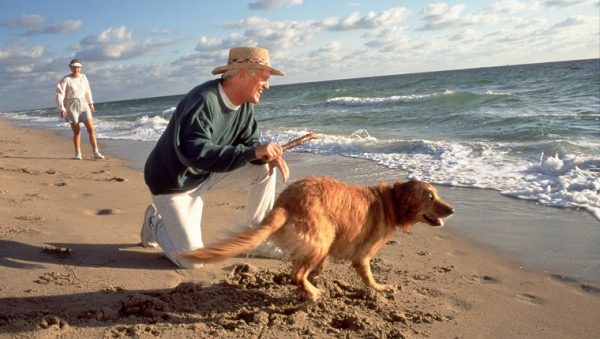They are a member of the family, so much so that the number of dogs in the province of Alicante continues to grow year after year, with totals already exceeding the number of children.
According to data provided by the College of Veterinarians, the province of Alicante has 394,295 registered dogs, a number just slightly lower than the population of the city of Alicante and a figure that exceeds the entire population of those who are under 20 years of age: 381,279.
And the number is based purely on those dogs that are micro chipped, a measure with which approximately 20% of owners fail to comply, so the real population of dogs would be much greater,” says Gonzalo Moreno del Val, president of the College of Veterinarians.
Alicante also exceeds the national average of one dog for every 7.5 inhabitants, where the figure is one for every 5 people.
Of course we know that the numbers are driven by both an aging population and by loneliness, (there are 366,152 people over 65) and dogs are said to be the best company for the elderly, who often find solitude and companionship in their pets, “something that we share with many European countries,” says Del Val.
Dogs can also be a boost to their owner’s mental and physical health. A study made last August, and published in the monthly medical magazine ‘Mayo Clinic Proceedings’ concludes that having a dog at home improves levels of blood pressure levels and cholesterol and is also associated with a lower incidence of obesity, which protects the cardiovascular health of owner. “Those who have a dog walk more, which improves many health parameters,” says Gonzalo Moreno del Val.

With the increase in the number of pets, cities have had to adapt to their presence and today it is not unusual to see dogs in shopping centres, nor are we surprised by the increasing number of exclusive spaces for them in parks or on beaches.
However, there is still a way to go. “In many European countries, such as France and Belgium it is not uncommon for dogs to enter restaurants or go on public transport,” explains veterinarian Michel Follet. In Spain though, they are rarely allowed. Likewise people find it difficult when trying to find a rental property. “Nobody wants to rent a house to someone who has animals, which can often lead to their abandonment.”
And the abandonment of dogs remains an ongoing problem. For Michael Follet, who is also president of the Protective Society of Animals, it often depends on the area where you live. He says that in large cities, abandoned pets are rare. “Whenever we receive a call it is usually because the animal has escaped from its owner”. But it is very different in rural areas where dogs are regularly abandoned. “There is hardly any control over reproduction and many puppies are born that are later left to fend for themselves,” he says.
Not even the crisis that we went through, and in some places still continue to do so, has slowed down the increase in the number of pets. But what has happened is that many owners have had to choose between eating and paying bills. Veterinarians say that animal vaccinations fell a lot in those years and they have not yet fully recovered. They estimate that around 30% of dogs are not vaccinated or dewormed, which in the province would represent about 142,000 animals, adding to those that don’t have microchips.
Gonzalo Moreno emphasises the importance of these animals having all their medical treatments, “because the health of animals also has an impact on that of humans.”
Caroline Moye, Head of World Cancer Research Fund, added : “It’s great to see that something as simple as dog walking can help older people be more active.
“Being physically active is extremely important. In fact, our own evidence has shown that it can even help to reduce the risk of developing a number of cancers including breast and bowel.”





